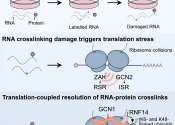By tracking water molecules, physicists hope to unlock secrets of life
(PhysOrg.com) -- Compared to any other liquid on Earth, water behaves in strange and unexpected ways, yet its unusual properties enable and protect life as we know it. By tracking individual water molecules in a "supercooled" ...




